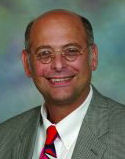Latin for hospitalists
Here are the top 10 useful Latin phrases for hospitalists for 2012.
From corpus luteum to alveolus, delirium tremens to rigor mortis, Latin is essential to the medical vocabulary. Certain phrases in Latin carry both historic and modern significance. Here are our top 10 useful Latin phrases for hospitalists for 2012.
Mea culpa

“It is my fault.” When we make a mistake, it's best to admit it. If a medical error occurs, as it all too often does, it's best to inform the patient and explain what happened. Ideally a systemic cause can be found and future errors prevented. Mea culpa—it's probably better than “J’accuse.”
Tempus fugit
“Time flies.” These words are part of a poem by the Roman poet Horace, used to describe the fleeting nature of love. Time flies when you are having fun. Time flies when you are busy and fulfilled. What could be worse than looking at the clock every 15 minutes, bored out of your skull? On the other hand, time also seems to fly when you are overloaded, and you look up from the daily havoc and realize it's dark outside. Tempus fugit—just make sure to get your frequent flier miles.
Non compos mentos
“Not of sound mind.” Are we talking about the patient or the clinician? Work hour restrictions may protect housestaff, but there is no such temporal prophylaxis for hospitalists. It's 5 a.m. for the fourth night in a row, and the patient admitted is speaking in tongues. Is it delirium? Withdrawal? Just a language you don't understand? Take a deep breath, check your own pulse and before you decide on a lumbar puncture, make sure it's not you who is non compos mentos.
Dum spiro spero
“While I breathe, I hope.” We live in a medical environment where palliative care is part of the landscape. For every admission we must ask what a patient wants in the event that her heart stops, or he ceases to breathe. Often it's the family who must make this difficult decision. And sometimes patients, riddled with cancer, on dialysis and a fistful of drugs, say to us, “I want everything.”
Cogito ergo sum
“I think, therefore I am.” As hospitalists, we may stick an occasional needle in a closed space, or shove some tubing in an orifice, but at heart ours is a thinking profession. Perhaps, as Descartes once thought, the seat of the soul is not in the pineal gland. Perhaps now it is in our mobile device.
Terra incognita
“Unknown territory.” You are traveling through another dimension not only of sight and sound but of mind, a journey into a land whose boundaries are that of imagination. There's a signpost up ahead: your next stop is the PACU (post-anesthesia care unit). OK, maybe it's not the Twilight Zone, but it's not your usual turf. Sometimes you need to go to the SICU or PACU or even the ED. It may seem like terra incognita at first, but it will get cognita quickly enough.
Carpe diem
“Seize the day.” There is beauty in a day well spent. Horace used these words to mark the brevity of life. We cannot live for the end of the shift or the end of the week, or we end up living for the end of our lives. Quality of life is important in hospital medicine. You should carpe every diem you can get your hands on.
Video sed non credo
“I see it but I don't believe it.” This is what Professor Caspar Hofman said in 1636 when William Harvey showed him proof that the blood did in fact circulate. He saw the evidence but it went against everything he believed. Whether it's an article showing what we've done for the last 20 years actually harms patients, or a new rule by our friends at CMS (aka Medicare), sometimes it seems that our eyes or brains are deceiving us.
Primum non nocere
“First, do no harm.” Of all the phrases, this is perhaps the most important. We harm our patients every day, though this is not our intent. Care of the patient is vital, but care of the chart is equally essential to survival. So for the 21st century, perhaps we should amend the Hippocratic saying to “Primum non nocere sans documentum” (“First do no harm without proper documentation”).
Finally, when we discharge our patients, we say “ave atque vale” (“Hail and farewell”).



